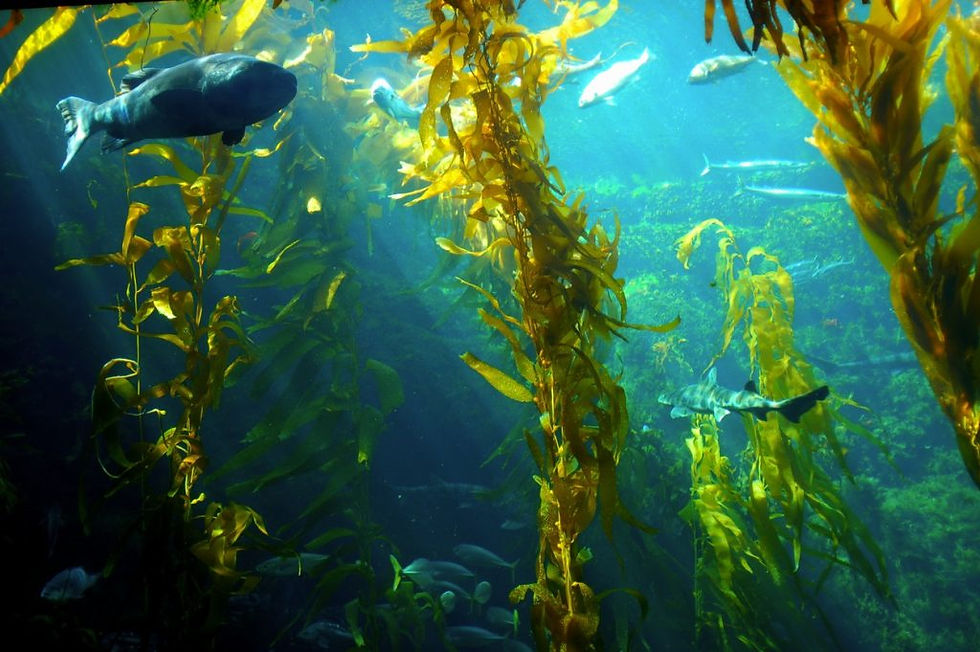Documentary Review: 2040 - Gökberk Bilgin
- Dec 7, 2020
- 4 min read

Damon Gameau is a famous Australian director best known for the That Sugar Movie documentary, where he explained how sugar affects our health. It helped many people to lose weight and made him famous worldwide. Last year, Gameau directed another documentary named 2040, explaining how we caused current climate problems and the solutions.
The documentary begins by introducing how the carbon levels in the atmosphere affect our lives. In nature, there was a balance in the carbon cycle. However, after the industrial revolution, carbon released into the atmosphere increased by 40%.
The distortion lead-carbon dioxide levels to increase where 90% of them absorbed by the oceans. Eventually, the conditions change, and living creatures cannot adapt to the new situation. These climate changes occur in the history of our planet; however, none of them are happening at this pace, and changing weather conditions crates massive problems to our existence.
The documentary aims to show how we can control the carbon emissions with the technologies we already have today before 2040. These technologies include micro-scale solar panels, automated cars, agricultural methods, permaculture, and education policies.
Today, many developing countries try to implement energy transition policies in developed countries, yet they are not becoming successful. One of the main reasons for this failure is that developed countries have a strong infrastructure to provide primary services such as electricity, water, transportation, etc. However, in developing countries, these services are available in limited areas. Many of them are vulnerable to natural disasters and creates a major burden on the budget. A possible solution in this situation comes from the micro solar grids where each home has a small solar panel on its roof. With the help of a machine, houses are becoming able to make electricity trade with each other. Without connecting to the country's central grid system, they are enjoying the benefits of having electricity. The documentary shows a village in Bangladesh and how the society benefited from producing their electricity and sharing it. Besides having a reliable energy source, it helps improve health, education, trade, and communication sectors, where each is discussed in the documentary. Since the money allocated to electricity consumption remains within the community, it directly contributes to the region's development.
Another problem we can overcome for healing nature comes from changing our perception about cars. Today, having a car is still a symbol of status in most cultures, and it causes a massive inefficiency in terms of usages. The documentary states that 96% of the time, personal cars are not being used. Instead, they are offering on-demand vehicle cars, where you continuously rent them when you need them. With the development of automated driver technologies, this can be the future of commuting. We can save billions of dollars and land and reallocate those resources for a better environment. Today many different companies are working on these technologies, and even though it seems impossible, we can have a transition in that area. Since humans are the main reason for the traffic jams by unnecessarily changing lanes or using breaks, we might have less traffic with the same number of cars in the city with automated technologies.
Alongside reducing our carbon emissions, we also need to find ways to store them for a healthy environment. The best storage area for that is the soil. With better agricultural policies, we can manage to do that, and the documentary shows some of the possible methods that are already working.
Today, the problems we have on this matter comes from several areas. One of them is that we are overusing our agricultural lands and increasing carbon emissions. The second one is that using chemicals on the land makes soil absorbing less water, and it creates pollution and floods. Finally, we are restricting our animals to move freely on the ground and closing, feeding them with industrial crops that use a significant number of agricultural lands. Since the animals do not interact with the soil properly, they cannot contribute to the natural process, and we cause distortions in our lands. The documentary shows how we can overcome these problems by providing real examples.
Finally, the documentary introduces us to marine permaculture for the oceans, where you build seaweed farms that use carbon sources to grow. Interestingly, the former studies show that they have a huge impact on restoring sea life. The fishes come back, and acid levels due to carbon dioxide decline in the region. While the seaweed farms heal the oceans, it becomes useful for humans in many different areas discussed in the documentary.

Overall, the 2040 documentary claims that we have everything we need to control the climate change problem and restore the damage we caused to our planet. It gives the viewers an optimistic feeling that with the change in our habits, we can transform our lifestyle into a healthier one. Despite not all of the solutions offered are perfect, I believe discussing these issues in a utopic way and start implementing small changes benefits our improvement. The idea behind SpaceX or Tesla was unachievable for many at the time, yet the results show the otherwise. We can test these new ideas for energy transition and better agricultural policies and start to think differently about our priorities. It may not be easy for the older generations, but future generations can adapt to necessary changes with the improvements in our education policies. In Turkey, the documentary is available at Bein Connect. To have more details about the policies I discussed in this article, you can watch it from there.




Comments